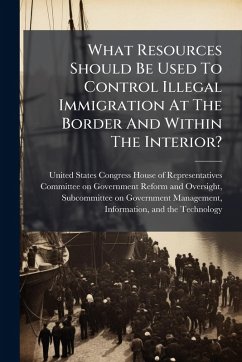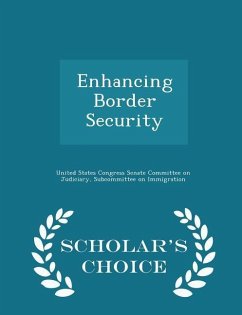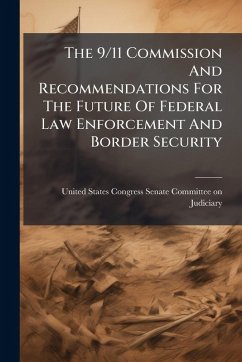
Expeditionary Border Security Operations
Eliminating the Seams
Versandkostenfrei!
Versandfertig in über 4 Wochen
15,99 €
inkl. MwSt.

PAYBACK Punkte
8 °P sammeln!
Within the context of the current US government endeavor to unify its actions and build partner-nation military capabilities in the Global War on Terror (GWOT), this monograph seeks to determine the potential value of utilizing expeditionary interagency border security teams (BSTs) to conduct border security operations and training during theater security cooperation activities. Specifically, this monograph answers whether border security operations will assist nations in countering destabilizing elements within their nations and, subsequently, impacting the operational scope and capability of...
Within the context of the current US government endeavor to unify its actions and build partner-nation military capabilities in the Global War on Terror (GWOT), this monograph seeks to determine the potential value of utilizing expeditionary interagency border security teams (BSTs) to conduct border security operations and training during theater security cooperation activities. Specifically, this monograph answers whether border security operations will assist nations in countering destabilizing elements within their nations and, subsequently, impacting the operational scope and capability of global terrorist networks that threaten US national security. This paper uses case studies in the Tri Border area of South America and the Trans Sahel region in Africa to examine the threat from a convergence of terrorist and criminal organizations toward complementary efforts and their use of porous border regions to conduct logistical activities. This convergence greatly expands the scope and capability of each individual terrorist or criminal organization and the cumulative effect can overwhelm the security forces of many nations and provide a critical link in a logistical network tracing a path to the border of the US. To counter this threat the paper analyzes a case study of Post WW II Germany and develops a framework for border security operations consisting of eight principles: consistent national agreements established upfront between allied and partner nations concerning border security policies; integrated border security policies at the US national level; the ability to communicate with the local populace culturally and linguistically and provide outlets for information requirements from the local population; early intervention to prevent a collapse in security that would require major international military intervention; a border security force which has a static and mobile capability; the use of indigenous population in border security forces; an integrated econo This work has been selected by scholars as being culturally important, and is part of the knowledge base of civilization as we know it. This work was reproduced from the original artifact, and remains as true to the original work as possible. Therefore, you will see the original copyright references, library stamps (as most of these works have been housed in our most important libraries around the world), and other notations in the work. This work is in the public domain in the United States of America, and possibly other nations. Within the United States, you may freely copy and distribute this work, as no entity (individual or corporate) has a copyright on the body of the work. As a reproduction of a historical artifact, this work may contain missing or blurred pages, poor pictures, errant marks, etc. Scholars believe, and we concur, that this work is important enough to be preserved, reproduced, and made generally available to the public. We appreciate your support of the preservation process, and thank you for being an important part of keeping this knowledge alive and relevant.












